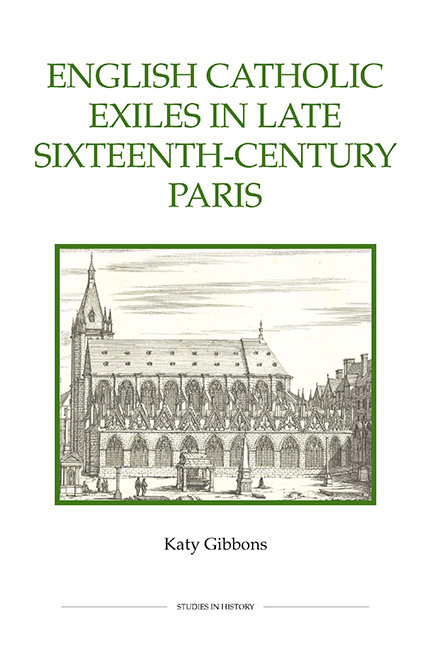Book contents
- Frontmatter
- Contents
- Acknowledgements
- Abbreviations
- Editorial conventions
- Introduction
- 1 The home and host contexts for Elizabethan exiles
- 2 Between civility and piety: exile niches in an urban environment
- 3 Exile in action: communicating and propagating the cause of radical Catholicism
- 4 Making sense of exile: alternative and competing representations
- 5 Returning or remaining? Divisions and longer-term developments in English Catholicism
- Conclusion
- Bibliography
- Index
Introduction
Published online by Cambridge University Press: 11 May 2017
- Frontmatter
- Contents
- Acknowledgements
- Abbreviations
- Editorial conventions
- Introduction
- 1 The home and host contexts for Elizabethan exiles
- 2 Between civility and piety: exile niches in an urban environment
- 3 Exile in action: communicating and propagating the cause of radical Catholicism
- 4 Making sense of exile: alternative and competing representations
- 5 Returning or remaining? Divisions and longer-term developments in English Catholicism
- Conclusion
- Bibliography
- Index
Summary
By 1580 the English government was increasingly concerned about large numbers of its Catholic subjects overseas. These exiles confirmed suspicions of an imminent foreign attack on England, in which Catholic exiles were to take a central role. With Spanish and papal support for uprisings in Ireland, rumours of an anti-English League and the imminent arrival of the Jesuits in England, the Elizabethan regime feared the worst. The key arena for this activity was France, England's close neighbour and old rival. Both Catholic and Protestant reports noted that Catholics were moving into France, ‘daily … from Rome and other places’. One government agent wrote of their arrival in Paris with a sense of impending doom: ‘Their coming in this sort cannot be without great cause and secret intent. I pray God that these things, which prognosticate small good for England, may be soundly looked into.’
Whilst concern about a subversive group beyond the reach of the government was not new, it intensified in the 1580s, a time of increased speculation about the future of the English and Scottish kingdoms. Measures to prevent the movement of Catholics overseas, and to dispossess those who left, were accompanied by a campaign to convince an English audience of the treasonous nature and practical miseries of exile. However, whilst the government had established informers in their midst, their efforts to halt the movement of people, correspondence and funds across the Channel were not succeeding. Substantial numbers of lay Catholics, notably those of highborn status, continued to turn their sights overseas, particularly to Paris.
It is with this group in Paris that this book is concerned. In the early 1580s Paris was a key centre for English Catholics. Their situation also became a central motif for Parisians seeking to understand and remedy problems within their own kingdom. Exile in Paris, a city often assumed to be closed to outsiders, had an immediate and dramatic impact on the exiles and the wider English Catholic community, on the Protestant government at home, and on religious and political conflicts in France's capital city. The crucial significance of the English presence can be seen in the efforts made by Elizabeth's government to subvert their activity, and in the debates that they provoked amongst their coreligionists at home about the status of Catholics in a Protestant state.
- Type
- Chapter
- Information
- Publisher: Boydell & BrewerPrint publication year: 2011

